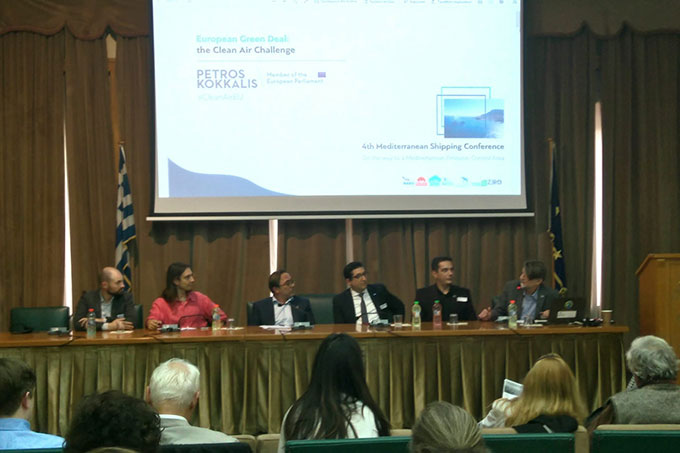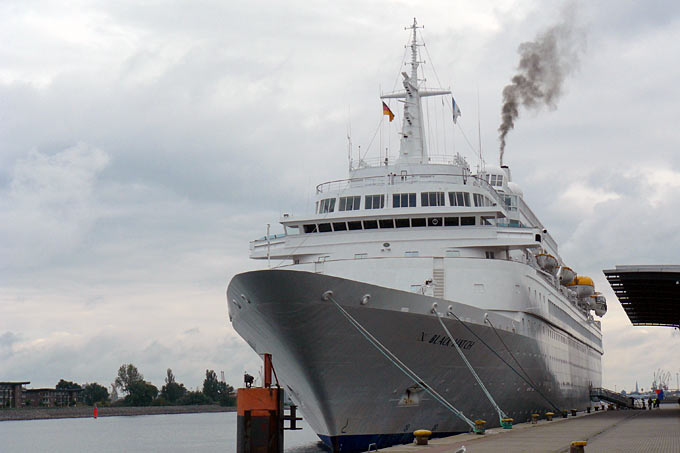4th Mediterranean Shipping Conference
On the way to a Mediterranean Emission Control Area

Panel Discussion - Photo: Maria Garcia
The International Maritime Organization (IMO) adopted a 0.5% sulphur threshold for shipping fuel, which will enter into force on first of January 2020. This is still five hundred times higher than the standard on land. Thus, ships will remain a major source of toxic air pollution. Hence, areas with high shipping traffic as the Mediterranean Sea are particularly affected by these harmful shipping emissions such as particulate matter, black carbon, nitrogen oxides and sulphur oxides. Thanks to the creation of Sulphur Emission Control Areas (SECA) in the North and the Baltic Sea, air quality got significantly better in this area. Therefore, effective means to reduce air pollution from ships in the Mediterranean Sea such as an ECA should be established likewise.
Together with stakeholders from the shipping industry, ports, cities, science, administration and civil society we will not only reflect the shipping emissions impacts on the Mediterranean region but also identify the technical and legislative means to effectively reduce air pollution from shipping as well as corresponding challenges.
What? 4th Mediterranean Shipping Conference - On the way to a Mediterranean Emission Control Area
When? Wednesday, 20th November 2019 | 10:00-18:00
Where? Piraeus Chamber of Commerce and Industry, Loudovikou 1, Pireas 185 31, Greece
Presentations
Session 1- Shipping and Air Pollution
Session 2 – Policy
Discussion „Benefits of the ECA and Challenges for the Introduction”
Session 3 - Port City Relations
Session 4 – Monitoring & Solutions
More Information
Sulphur oxide (SOx), nitrogene oxide (NOx) and (ultra) fine particle (PM) emissions from shipping are a significant threat to human health, the environment and the climate. A well established network of NGOs in Europe is working towards establishing a Mediterranean Emission Control Area (MedECA) for sulphur and nitrogen oxide emissions. more →

